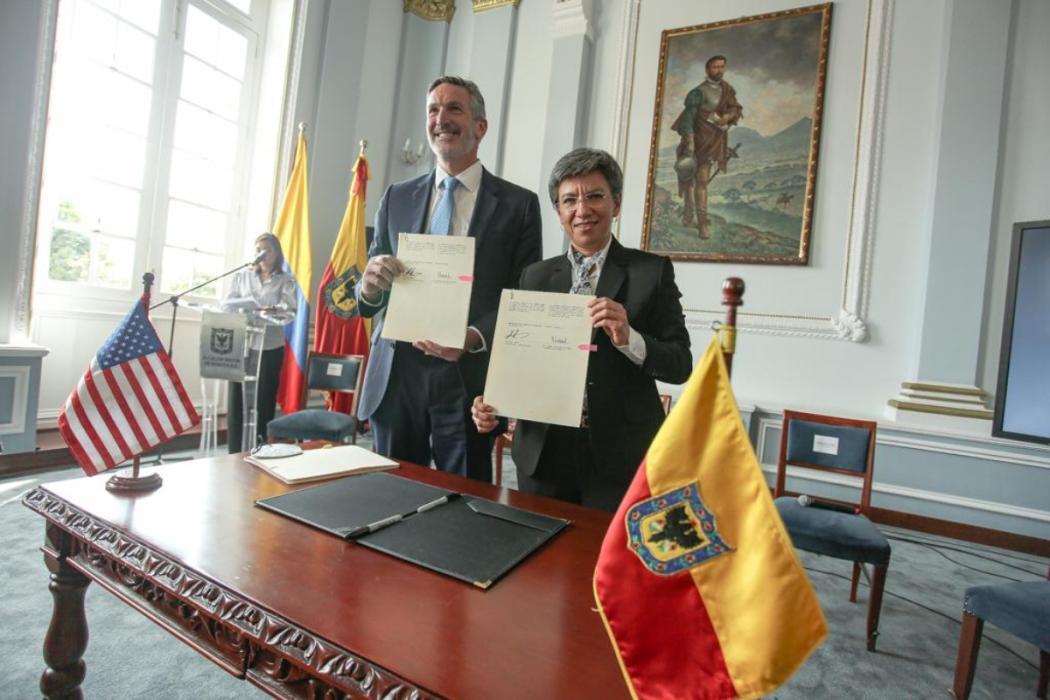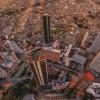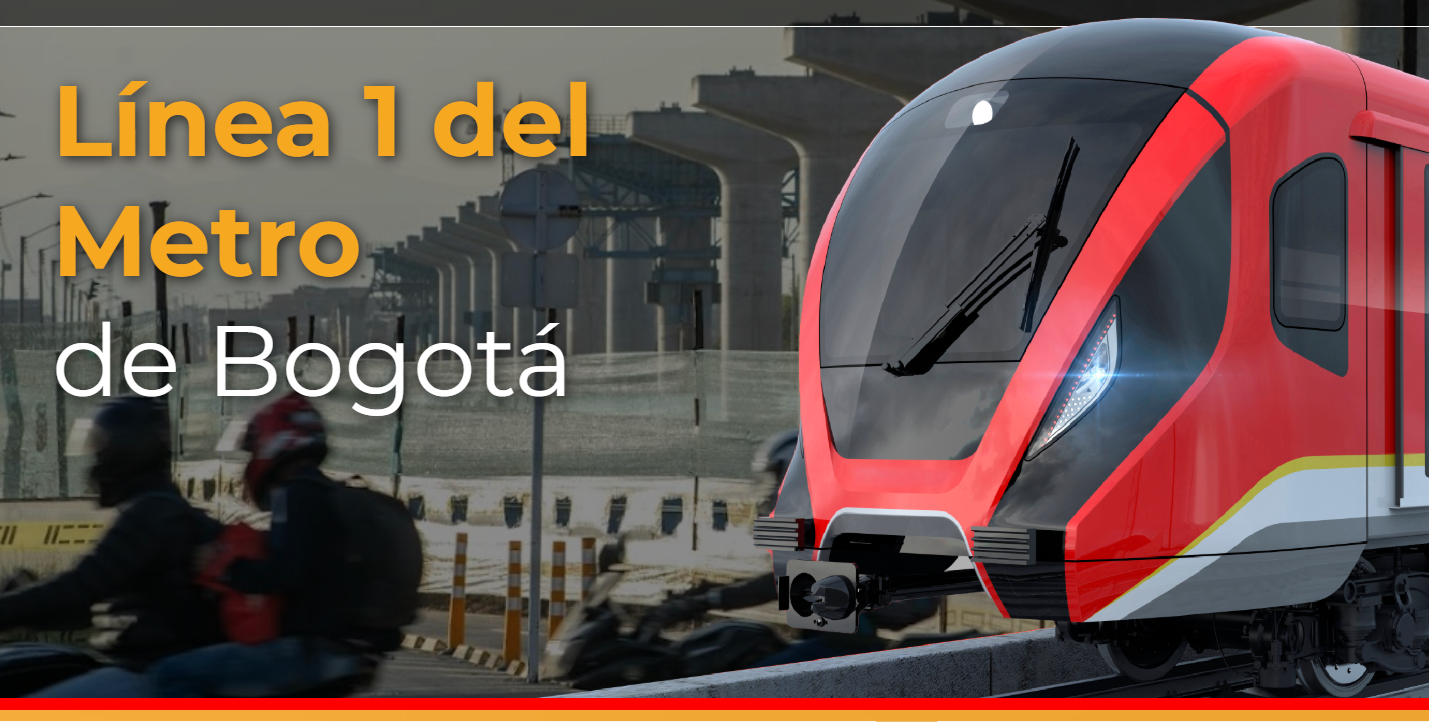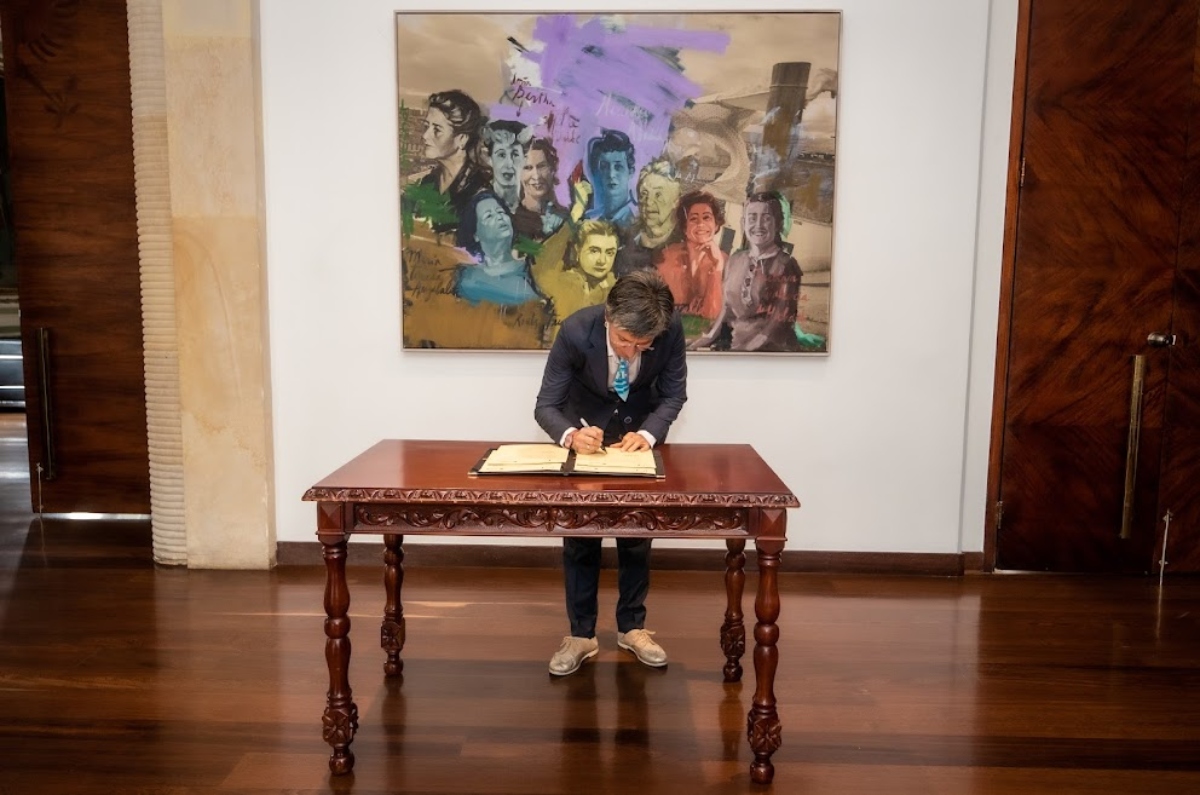Today, during the launch of the Intersectoral Commission for Service to and Integration of the Migrant Population, the Mayor of Bogotá, Claudia Lopez, and the director of the United States Agency for International Development (USAID) in Colombia, Larry Sacks, signed a Memorandum of Understanding to strengthen mutual cooperation.
"Bogotá is what it is, it is the pride of Colombia, its motor, because it is blessed to receive the best of Colombian and global human capital. It is an inclusive, supportive, and diverse city," said the mayor, recalling that it was Venezuela that first received a wave of Colombian migrants several years ago.
"Now, it’s our turn and this is something we will always have to remember. Here we really apply the saying 'Today for you, tomorrow for me' and tomorrow who knows for whom," said the Mayor.
Below is the tweet from Bogotá International Relations office summarizing the achievements of yesterday's event.
📢 Newsflash @Bogota and @USAID_Colombia sign a Memorandum of Understanding to strengthen cooperation related to:
— Relaciones Internacionales Bogotá (@BogotaInter_nal) March 29, 2022
🕊️Implementation of the Peace Agreement
⚖️ Gender equality
🙋🏽Leadership of vulnerable youth
👐🏽 Social and economic integration of the migrant population pic.twitter.com/U2aUIw5LPJ
The memorandum seeks to increase the city's response capacity for the social and economic integration of migratory flows, the fight against xenophobia, job creation, and support for enterprises in the receiving communities.
The signing of this instrument also deepens cooperation aimed at the implementation of the Peace Agreement in Bogotá, gender equality, leadership development for vulnerable youth, and inclusive economic development.
"The Memorandum of Understanding allows us to continue finding opportunities for young people, for the migrant population, and for women, so we can respond to xenophobia and promote inclusion, so we can continue weaving the path towards reconciliation, together in this environment of trust, respect and friendship," said Larry Sacks, director of USAID in Colombia.
After the signing of the document, the Mayor, the Director of USAID, and Lucas Gómez, Border Manager of the Presidency of the Republic, spoke with Julimar Josefina Peña and Yoseanne Glendary Schaffer, migrant beneficiaries of the District's programs, about "Achievements and challenges in the reception and integration of the migrant population in Bogotá D.C."
Cooperation efforts for service to the migrant population in Bogotá
The most recent Migration Colombia report as of August 31, 2021 reported that there are an estimated 1,842,390 Venezuelan migrants in the national territory, of who 1,182,059 are engaged in the legalization process as part of the implementation of the Temporary Protection Statute for Venezuelan migrants.
Of the total population reported by Migration Colombia, 21.37% is located in Bogotá (393,716 Venezuelan migrants), the city with the most migrants from the neighboring country.
The Colombian capital offers a wide range of services to migrants, including education, cultural programs, humanitarian assistance, and protection for victims of gender-based violence, among other services. To date, Bogotá has provided more than 2 million services to this population, supported the pre-registration of 50,000 migrants, and carried out biometric registration of close to 164,000 others.
Launch of the District Intersectoral Commission for Service to the Migrant Population
The Mayor of Bogotá chaired the first session of the Intersectoral Commission for Service to the Migrant Population, a district body that will have participation from secretaries and heads of the entities that exercise functions related to migration and service to and integration of the migrant population.
The objective of the District Intersectoral Commission is to lead, guide, and articulate the formulation and development of the district strategy for emergency humanitarian care, assistance, stabilization, and integration for refugees, migrants and returnees of any nationality, in situations of vulnerability, from a rights perspective with a differential gender approach.
"Bogotá is not only the migration capital of Colombia, but also the city with the most migrants in all of Latin America and the Caribbean. That means that in the last year and a half what has been done in Bogotá is monumental," revealed the district's senior advisor for Migration, Ivan Gaitán.
The Intersectoral Commission is the ideal scenario to bring together technical and operational efforts to develop the 2022 - 2023 Biannual Plan, which will consist of programs, projects, and activities that will facilitate processes of reception, inclusion, and development for the migrant and returnee population settled in Bogotá, with the aim of contributing to the city project.






